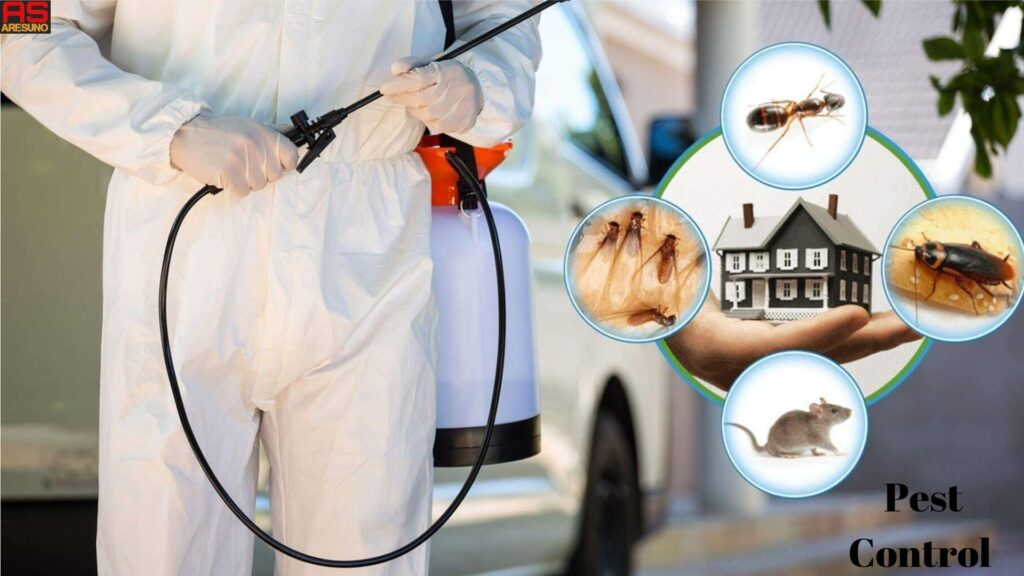In New York City apartments, cockroach problems often trigger confusion over who’s responsible—especially when neighbors refuse to cooperate. Here’s what tenants need to know about rights, legal protections, and practical next steps.
The Problem: Cockroach Infestations and the Question of Responsibility
Living in New York City has its unique perks—and its persistent problems. Among the most frustrating for renters? Cockroach infestations that never seem to go away, no matter how clean your apartment is. For many tenants, this leads to a difficult question: Who’s actually responsible for fixing the issue—me, my landlord, or my uncooperative neighbor who won’t clean up their act?
This isn’t just a matter of pest sightings; cockroaches can pose serious health risks. They’re known to carry bacteria, trigger asthma, and contaminate food. But when they keep coming back, especially from next door, it’s not just gross—it’s exhausting.
In buildings with shared walls, pipes, and hallways, roaches don’t respect boundaries. That’s where the problem becomes more than just personal—it’s structural, legal, and communal.
Agitate: When Neighbors Won’t Cooperate and Landlords Drop the Ball
Let’s say you’ve done your part. You’ve cleaned thoroughly, sealed cracks, taken out trash regularly, and maybe even hired your own exterminator. But the roaches still return. And after talking to the building superintendent, you learn the unit next door has an ongoing pest problem—and the tenant refuses to let exterminators in. Meanwhile, your landlord isn’t enforcing access, and the bugs just keep marching through.
That’s the nightmare situation many NYC tenants face: their best efforts mean nothing if the infestation source isn’t addressed. Even worse, some landlords will point fingers at tenants or treat each complaint like an isolated incident—when really, it’s a building-wide issue.
The frustration builds:
- Repeated exterminations fail to solve the problem.
- Neighbors ignore advice or refuse access to pest control professionals.
- Landlords claim their hands are tied or delay taking legal steps.
- You’re stuck footing the bill—and living with roaches you didn’t invite.
Case Study: A Real Story from a Brooklyn Walk-Up
In a small rent-stabilized walk-up on Nostrand Avenue, a young couple—Luis and Rina—moved into what seemed like the perfect one-bedroom. Within a week, they noticed roaches at night, crawling along countertops and even emerging from electrical outlets. Despite keeping the apartment spotless, the pests kept coming. They filed a complaint with their landlord, who sent an exterminator once a month. Still, the problem persisted.
After some sleuthing, they discovered the apartment next door was rarely cleaned and stacked high with trash bags. The tenant, an elderly man, refused entry to pest control teams. Even when the landlord tried to intervene, he didn’t pursue legal action, citing concerns about “tenant rights” and “privacy.”
It wasn’t until Luis and Rina contacted 311 and got NYC Housing Preservation and Development (HPD) involved that thing changed. An inspector verified the building had a persistent pest problem, issued violations, and warned the landlord of further penalties. Under pressure, the landlord began eviction proceedings against the uncooperative tenant (with HPD’s support), citing the roach infestation as a health hazard for the entire building. A few months later, after a coordinated treatment of all affected units, the infestation was finally under control.
This story underscores something many renters learn the hard way: unless all units are treated and the source is addressed, cockroach infestations won’t go away. And it also shows the power of involving city agencies when landlords or neighbors fail to act.
Protecting Your Manhattan Home: The Ultimate Guide to Termite Treatment and Prevention
Solution: Know Your Rights, Take the Right Steps, and Involve the Right Help
Tenants in NYC have legal protections. Cockroach infestations fall under the city’s Housing Maintenance Code, which requires landlords to maintain safe, livable conditions—including keeping apartments free from pests. That means landlords are responsible for pest control, not tenants.
But here’s where it gets complicated: if another tenant is causing or worsening the infestation, and they won’t cooperate, your landlord still has an obligation to act. It’s not enough for them to say their hands are tied.
If you’re facing an ongoing infestation, follow these steps:
- Document Everything – Take dated photos of roaches and pest damage. Save exterminator receipts and communication with your landlord.
- Notify Your Landlord in Writing – Email or send a letter describing the issue clearly. Keep a copy.
- Call 311 – File a formal complaint with HPD. They’ll send an inspector and can issue a violation if needed.
- Allow Access – If your landlord sends an exterminator, let them in. Denying access may weaken your case.
- Talk to Neighbors – If possible, see if others are affected. A group complaint carries more weight.
If the landlord still doesn’t act, HPD can fine them or pursue legal remedies. In severe cases, the city can even step in and hire its own pest control team—then bill the landlord.
Some pest control companies NYC renters trust also work closely with property managers to coordinate full-building treatments. If your landlord is serious about solving the issue, they should bring in professionals who understand how to treat infestations that affect multiple units, not just isolated ones.
Why Neighbor Cooperation Matters—and How to Address It
Let’s be clear: a single apartment can’t solve a building-wide pest issue. Roaches travel through shared plumbing, electrical lines, and baseboards. If even one tenant refuses treatment, the entire effort can fail.
But landlords can and should enforce building-wide pest control. In extreme cases, they can seek court orders to gain access to units for extermination. If they won’t, the city might pressure them to act.
For tenants, that means pushing hard for documentation and escalation. Keep your complaints clear and focused on health and safety—not personal disputes. Frame it as a building issue, not just your own problem.
And if you’re a landlord reading this: understand that tenants will pursue legal options if you ignore them. A few ignored complaints can lead to HPD violations, bad reviews, or even lawsuits.
When DIY Isn’t Enough: The Role of Professionals
It’s tempting to rely on sprays and traps when you first see roaches—but persistent infestations call for experienced exterminators who can evaluate the full structure, identify hidden nests, and apply safe, building-appropriate treatments.
Professionals can also advise landlords on sealing entry points, scheduling follow-ups, and educating tenants on prevention. Some pest control companies trust even offer written service reports that landlords can use to show compliance with city codes.
That kind of coordinated, expert approach often makes the difference between an infestation that lingers and one that’s finally solved.
Final Takeaway: Cockroach Infestations Aren’t Just Personal—They’re Legal and Shared
If you’re dealing with a cockroach issue in NYC, know this: the law is on your side, and you don’t have to tolerate neglect from your landlord or your neighbors. With clear documentation, city support, and professional help, even the most stubborn infestations can be handled.
But it starts with speaking up and taking those first formal steps. Don’t wait until the situation feels unlivable—cockroaches won’t go away on their own.
Need help from experts who understand NYC buildings inside and out? Call the pros today.
📱 +1 718-427-6200
- Pest control companies NYC: Who Handles Roaches in Apartments?
- In NYC apartments, cockroach issues can cause disputes—especially with uncooperative neighbors. Here’s what pest control companies NYC tenants should know.
- MosquitoandFlyControl, Bestmosquitocontrol, PestPrevention, ProfessionalExterminators, EcoFriendlyPestSolutions, ResidentialandCommercialPestControl, Cockroachexterminatorservice, TermiteControlServices, BedBugRemovalandAntExtermination, RodentExtermination, PestControl
Related posts:
 Nelson Builders: Your Trusted Partner for Renovations and New Homes in Nelson
Nelson Builders: Your Trusted Partner for Renovations and New Homes in Nelson
 Professional Cleaning Services in Malibu, CA – MLS Roofing & Construction
Professional Cleaning Services in Malibu, CA – MLS Roofing & Construction
 Reliable Roof Installation in Waterford, CT | Brennan Roofing
Reliable Roof Installation in Waterford, CT | Brennan Roofing
 When Is a Contractor License and Bond Legally Required: Hiring Tips
When Is a Contractor License and Bond Legally Required: Hiring Tips
 Roof Repointing vs Roof Replacement: Which Is Right for You?
Roof Repointing vs Roof Replacement: Which Is Right for You?
 Efficient Movers and Packers in Dubai for Stress-Free Relocation
Efficient Movers and Packers in Dubai for Stress-Free Relocation
 24/7 Emergency Plumber Near You – Fast, Reliable & Affordable!
24/7 Emergency Plumber Near You – Fast, Reliable & Affordable!
 Small Bedroom Design/Small Bedroom Tips That Make a Big Impact
Small Bedroom Design/Small Bedroom Tips That Make a Big Impact








